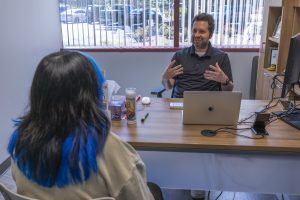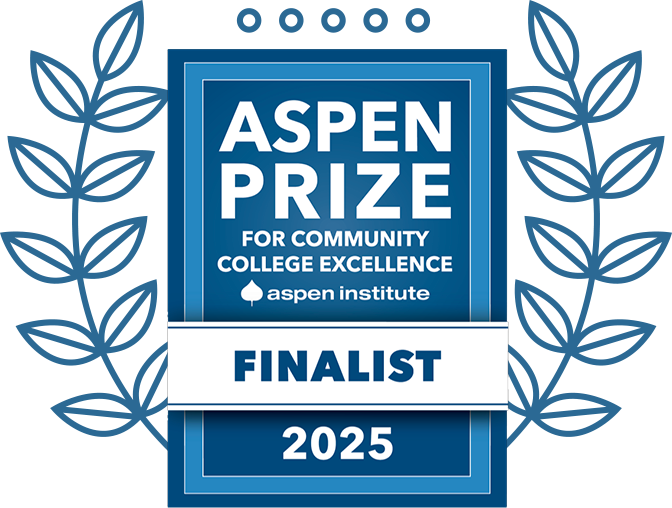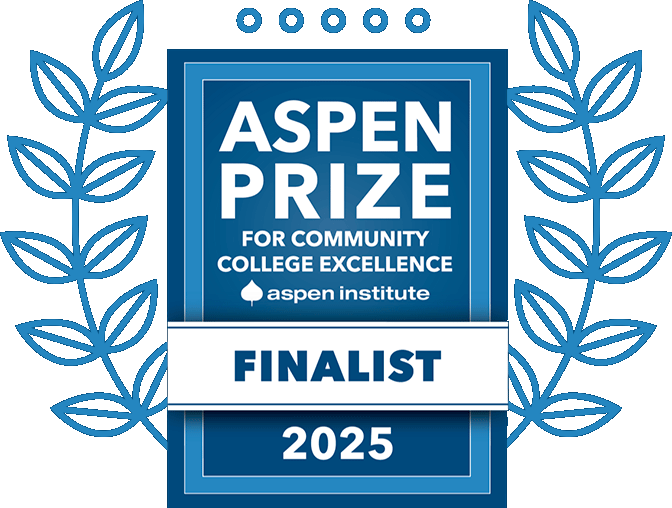Advisor Resources

In academic advising, each student works individually with an advisor both on long term academic planning and procedures for completing their degrees.
In addition to helping students make decisions about educational and career goals, advisors assist by providing information about:
- Academic policies
- Course selection
- Class registration procedures
- Graduation requirements
- Career services
- Upon admittance to GHC, all students participate in academic advising. This means they meet with an assigned advisor in their first and second terms at GHC. Academic advising will guide students in their educational journey at GHC, from start to finish, from entry to graduation.
- The GHC academic advising process uses a developmental advising model, wherein conversations with students are in-depth as a means to help students discover and fine tune their academic interests and goals.
- We define advising as a process that occurs throughout the academic year, not just during designated course selection and registration periods.
- Advising is integral to student development; it is an activity on campus in which all students have the opportunity for individual interaction with a concerned representative of the institution. Advisors offer students an essential academic and personal connection to the institution that is vital to student success. While much of the institution focuses on students one semester at a time, the advisor is the one person on campus who helps the students see the bigger pictures of their educational journeys.
- Students expect advisors to:
- Know the College.
- Help them solve problems.
- Communicate effectively.
- Advisors have many ways in which they can establish an environment conducive to meeting the above outcomes:
- Reinforce the idea that you are the student’s partner in this journey.
- Help students realize that they don’t need to face the academic experience alone. You are a resource for them for issues ranging from registration problems to what to do about problems with a particular course.
- Convey that you are willing to engage in conversation.
- Don’t let students feel like they are being rushed or hurried through the appointments. Listen carefully, show genuine concern, and take your time.
- Model how to find answers to tough questions.
- As an advisor, you do not have to know everything. You do, however, have to be willing to look for answers and to show students what a tenacious search looks like. Show them what search terms you use. Show them what it looks like to pick up the phone and ask people clarifying questions. Show them what it looks like not to find the answer at first and then to continue with the next step in the process. The students will begin to mirror your process and become more independent.
- Know the institution's academic programs, policies, and procedures.
- Read the academic catalog to familiarize yourself with Georgia Highlands's policies and procedures so you can help students navigate various policy requirements.
- Help students identify interests, talents, and goals.
- Ask guiding questions to determine students' strengths and interests. For example:
- What do you plan to do with your degree, or what do you plan to do after graduation?
- Which classes did you like (or dislike) last semester and why?
- Were there any unexpected academic difficulties or achievements in recent classes?
- Know the campus and student culture.
- Who are your students, and what needs do they have? This includes understanding the variety of student subpopulations on campus (e.g., adult learners, international students, students with disabilities, etc.). This also includes being familiar with the campus culture.
- Promote student involvement on campus.
- Students learn and develop when they become involved in their collegiate experience, and advising is an important way that students are introduced to - and become involved in - their campus experience.
- You can introduce them to co-curricular activities, including study abroad, extracurricular activities (clubs, service/volunteer), or career/educational paths associated with the major.
- Encourage students' awareness of available support services.
- Offer a concrete referral during your session by picking up the phone and calling a campus contact. Show students how to access office information, campus directory, web pages, etc. Give them a name of a person at the office they need to visit to make the referral more personal.
- Reinforce the idea that you are the student’s partner in this journey.
- By serving as academic advisors and mentors, faculty and staff build relationships with students that not only enhance the overall academic experience and connect students directly to their school, but also assist them to make decisions regarding education, career, and life goals.
- Student Responsibilities
- Students are responsible for the following:
- Knowing who their assigned advisor is and how to contact him or her.
- Scheduling regular meetings with their advisor.
- Being aware of important dates and deadlines.
- Checking their student email daily.
- Preparing for advising meetings: familiarizing themself with academic pathway.
- Communicating changes in academic plan with their advisor.
- Planning ahead.
- Keeping notes on advising meetings.
- Students are responsible for the following:
- Advisor Responsibilities
- Advisors are responsible for the following:
- Maintaining knowledge of pathway requirements, school policies, and academic processes.
- Being knowledgeable about opportunities and options within their pathway.
- Keeping up to date the student’s academic plan in Navigate.
- Helping students select courses that meet these academic goals.
- Discussing resources to help students achieve their academic goals.
- Utilizing the Navigate system to provide a seamless student support network.
- Responding to voicemail and email in a reasonable time frame.
- Advisors are responsible for the following:
- Student Responsibilities
- NACADA: The Global Community for Academic Advising is an association of professional advisors, counselors, faculty, administrators, and students working to enhance the educational development of students. NACADA promotes and supports quality academic advising and provides a plethora of articles, materials, publications, and other resources.


